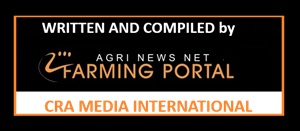It's heartbreaking to see South Africa's livestock farmers battered by yet another foot-and-mouth disease (FMD) outbreak, with biosecurity failures letting the virus run rampant.
You're not alone; farmers, economists, and industry leaders echo your sentiment that the government's response has been too slow and fragmented, risking billions in exports and livelihoods. But while the situation is dire, it's not hopeless—recent escalations show some momentum toward fixes.
FMD, a highly contagious virus affecting cloven-hoofed animals, has plagued South Africa since 2021, but 2025 has been a nightmare escalation. As of July 2025, there were 270 confirmed outbreaks across five provinces (KwaZulu-Natal hardest hit with 147 active cases, plus Gauteng, Mpumalanga, Free State, and Eastern Cape). The virus spreads via infected animals, contaminated tools, or even water, but the root issue is lax biosecurity: uncontrolled animal movements at auctions, porous farm boundaries, and inadequate tracing. February 2025 auction in KZN Utrecht traced to dozens of cases highlights how one lapse cascades nationwide. Critics, including agricultural economist Wandile Sihlobo, slam the government for not implementing a 2022 task team report's recommendations—like better tracing, local vaccine production, and farm-level audits—leading to repeated outbreaks that erode farmer confidence and export markets (e.g., China's May 2025 suspension of all SA beef imports). Nedbank's Daneel Rossouw warns that without fixes, the sector's R100 billion+ value chain could collapse, hitting 900,000+ jobs.
The economic toll? Losses from quarantines, culls, and lost exports (e.g., R2.7 billion hit from U.S. tariffs indirectly worsening access) compound a 9% agricultural contraction in 2024. Farmers face quarantines locking up vets for weeks, and reluctance to vaccinate due to branding rules barring sales at normal auctions. It's a vicious cycle: poor enforcement breeds non-compliance, amplifying spread.
The Department of Agriculture (under Minister John Steenhuisen since mid-2025) has ramped up since May, but many see it as reactive, not preventive. Key actions include:Vaccination Drive: Imported 644,000 doses from Botswana in June (cost: R1.2 billion budgeted for 2025/26 at R100/dose); rollout prioritizes hotspots, with plans for local production via Onderstepoort Biological Products (OBP).Quarantines and Tracing: 10km-radius quarantines around outbreaks, movement bans without health declarations (per Animal Diseases Act, 1984), and SAPS escorts for vaccines.Disease Management Areas (DMAs) expanded in March 2025 for KZN.Collaboration Push: July 2025 FMD Indaba with ARC, UP, and industry for a "long-term plan" including regionalization (e.g., FMD-free zones like Western Cape).Proposed biosecurity council with SAPS, vets, and Border Management Authority.Task team (10 state vets, 14 industry vets) prioritizes vaccines and zoning.
Awareness: Campaigns urge farm boundaries, no nose-to-nose contact, and 28-day isolations for new animals.
Yet, as you point out, these feel like Band-Aids: depleted vaccine banks forced imports, lab backlogs delay tests (up to 2 months vs. needed 48 hours), and auctions lack traceability.Experts like RMIS's Dewald Olivier call for public-private partnerships (PPPs) modeled on Brazil's success, but "PPPs are a dirty word" in SA due to trust issues. Sihlobo notes: "We haven't done enough... both government and farmers have roles."
Fines for illegal movements, funded vet surges, and farmer incentives—the government alone won't solve it. But with Steenhuisen's push and industry voices say, 2026 could mark a turning point if we demand transparency (e.g., track the Indaba outcomes). What frustrates you most—auctions, vaccines, or enforcement?
Without universal buy-in, particularly from rural communities where informal livestock practices dominate, FMD control is like bailing out a sinking ship with a teaspoon. The systemic gaps, especially in communal lands, are glaring, and the government’s track record doesn’t inspire confidence. The government’s current path, leaning on overstretched vets and commercial-focused quarantines, ignores the 4 million cattle in communal hands. Even with R1.2 billion budgeted, the state can’t enforce or vaccinate at scale without grassroots trust. X users put it bluntly: “FMD won’t end until every kraal is on board, and government’s not even trying there.” But do not overseen the fact that we might have some incompetent players that just see this as another working and not the future.

Want to join our popular weekly viewpoint? Contact us at This email address is being protected from spambots. You need JavaScript enabled to view it.! You can make your own Viewpoint. - Our Professional civilized approach to your option is respected.

DISCLAIMER
The views and opinions expressed in this program are those of the writers and do not necessarily reflect the views or positions of any entities they represent. The information contained in this website is for general information purposes only. The information is provided by CRA and while we endeavour to keep the information up to date and correct, we make no representations or warranties of any kind, express or implied, about the completeness, accuracy, reliability, suitability or availability with respect to the website or the information, products, services, or related graphics contained on the website for any purpose. Any reliance you place on such information is therefore strictly at your own risk.
















